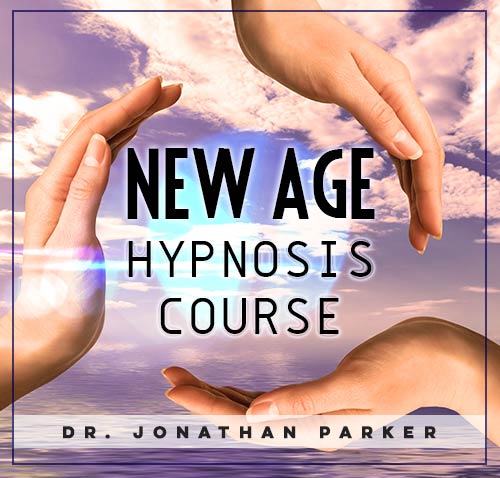Hypnosis and Relaxation Methods

Hey there, amazing readers! 🖐️ Just a quick note: yes, we know there are a lot of ads here. Trust us, we get it—it’s not the prettiest look, but they help us keep this blog alive and kicking. Those pesky little ads cover the costs of all the behind-the-scenes magic, from hosting and tech stuff to creating content we hope you’ll love.
We’re committed to delivering quality posts, and your support (even just sticking around despite the ads) means everything to us. So, bear with us, and thanks for helping us keep the good vibes rolling. Now, on to the fun stuff! 😉
TRANSLATE BUTTON AT THE END OF THE ARTICLE
A Quick Overview
In today’s fast-paced world, stress and anxiety have become common companions for many people.
Fortunately, there are various relaxation methods available that can help combat these overwhelming feelings.
One such method is hypnosis, a technique that has gained popularity for its ability to induce a state of deep relaxation and promote positive changes in behavior and thinking.
In this article, we will explore the world of hypnosis and relaxation methods, delving into the science behind these techniques, popular methods for stress relief, and how they can benefit mental health.
Understanding Hypnosis and its Benefits
Hypnosis is a state of focused attention and heightened suggestibility, often induced by a hypnotherapist or through self-hypnosis techniques.
This altered state of consciousness allows individuals to access their subconscious mind, where deep-seated beliefs and behaviors reside.
By tapping into the subconscious, hypnosis can help reprogram negative thought patterns, reduce stress, alleviate anxiety, and improve overall well-being.
The benefits of hypnosis go beyond relaxation; it can also aid in overcoming phobias, managing chronic pain, enhancing self-confidence, and even improving sleep quality.
The Science Behind Relaxation Techniques
Relaxation techniques, including hypnosis, work by activating the body’s natural relaxation response.
When we are stressed or anxious, our body goes into "fight or flight" mode, releasing stress hormones like cortisol and adrenaline.
By practicing relaxation methods, such as deep breathing, progressive muscle relaxation, and visualization, we can counteract this stress response and activate the parasympathetic nervous system.
This leads to a decrease in heart rate, blood pressure, and muscle tension, promoting a sense of calm and relaxation.
Popular Hypnosis Methods for Stress Relief
There are several popular hypnosis methods specifically designed for stress relief.
These include:
Guided Imagery: Using visualization to create calming mental images that promote relaxation.
Autogenic Training: A self-relaxation technique that focuses on promoting warmth and heaviness in the body to induce relaxation.
Hypnotherapy: Working with a trained hypnotherapist to address stress-related issues and promote relaxation through hypnotic suggestions.
Self-Hypnosis: Practicing hypnosis techniques on your own to induce a state of relaxation and reduce stress levels.
Deep Breathing Exercises for Relaxation
Deep breathing exercises are a simple yet powerful way to relax the body and calm the mind.
By focusing on slow, deep breaths, you can activate the body’s relaxation response and reduce feelings of stress and anxiety.
One popular deep breathing technique is diaphragmatic breathing, where you breathe in deeply through your nose, allowing your belly to rise, and exhale slowly through your mouth.
This practice not only promotes relaxation but also increases oxygen flow to the brain, improving cognitive function and mental clarity.
Progressive Muscle Relaxation Techniques
Progressive muscle relaxation is a relaxation technique that involves tensing and then releasing different muscle groups in the body.
By systematically tensing and relaxing muscles, you can reduce overall muscle tension and promote a sense of physical and mental relaxation.
This method is particularly effective for those who carry stress in their bodies, as it helps release pent-up tension and promotes a feeling of deep relaxation.
Progressive muscle relaxation can be practiced lying down or sitting comfortably, making it a versatile technique for stress relief.
Visualization and Guided Imagery in Hypnosis
Visualization and guided imagery are powerful tools used in hypnosis to induce relaxation and promote positive change.
By creating vivid mental images of peaceful scenes or desired outcomes, individuals can immerse themselves in a state of relaxation and focus.
Guided imagery scripts often incorporate soothing descriptions of nature, such as a tranquil beach or a serene forest, to help guide individuals into a state of deep relaxation.
This technique can be especially helpful for those struggling with anxiety or insomnia, as it provides a mental escape from stressors and promotes a sense of calm.
Autogenic Training for Deep Relaxation
Autogenic training is a relaxation technique that focuses on promoting self-regulation and deep relaxation through verbal cues.
By repeating affirmations related to warmth, heaviness, and relaxation, individuals can induce a state of calm and reduce stress levels.
This method is based on the principle that the mind and body are interconnected, and by influencing one, you can affect the other.
Autogenic training can be practiced sitting or lying down, making it a convenient technique for promoting relaxation in various settings.
Hypnotherapy for Anxiety and Insomnia
Hypnotherapy is a powerful tool for addressing anxiety and insomnia, two common conditions linked to stress and tension.
By working with a trained hypnotherapist, individuals can uncover the root causes of their anxiety or sleep disturbances and develop strategies to promote relaxation and improve sleep quality.
Hypnotherapy sessions often involve deep relaxation techniques, guided imagery, and hypnotic suggestions tailored to address specific issues.
Through regular hypnotherapy sessions, individuals can learn to manage anxiety, reduce insomnia, and improve overall mental well-being.
Combining Hypnosis with Meditation
Meditation and hypnosis are complementary practices that can enhance relaxation and promote a sense of inner peace.
While meditation focuses on mindfulness and being present in the moment, hypnosis allows individuals to access the subconscious mind and reprogram negative beliefs.
By combining these two practices, individuals can deepen their relaxation experience, cultivate self-awareness, and develop a sense of mental clarity.
This combination can be particularly beneficial for those looking to reduce stress, improve focus, and enhance overall well-being.
Self-Hypnosis Techniques for Relaxation
Self-hypnosis techniques empower individuals to induce a state of relaxation on their own, without the need for a hypnotherapist.
By practicing self-hypnosis regularly, individuals can learn to control their stress levels, reduce anxiety, and promote relaxation whenever needed.
Common self-hypnosis techniques include:
Progressive Relaxation: Tensing and relaxing muscle groups throughout the body to induce relaxation.
Visual Imagery: Creating mental images of peaceful scenes or desired outcomes to promote relaxation.
Positive Affirmations: Repeating affirmations related to relaxation, calmness, and well-being to induce a state of deep relaxation.
Benefits of Hypnosis for Mental Health
Hypnosis offers a range of benefits for mental health, including:
Stress Reduction: By inducing a state of deep relaxation, hypnosis can help reduce stress levels and promote a sense of calm.
Anxiety Management: Hypnosis techniques can be effective in addressing anxiety disorders and helping individuals cope with anxious thoughts and feelings.
Improved Sleep: Hypnosis can aid in improving sleep quality and reducing insomnia by promoting relaxation and reducing stress before bedtime.
Enhanced Self-Esteem: By reprogramming negative beliefs and boosting self-confidence, hypnosis can help individuals develop a positive self-image and improve self-esteem.
Incorporating Relaxation Methods into Daily Routine
To reap the benefits of relaxation techniques like hypnosis, it’s essential to incorporate them into your daily routine.
By setting aside time each day for relaxation practices, you can build resilience to stress, improve mental well-being, and enhance overall quality of life.
Some tips for integrating relaxation methods into your daily routine include:
Schedule Relaxation Time: Set aside dedicated time each day for relaxation exercises, such as deep breathing or guided imagery.
Practice Mindfulness: Stay present in the moment and focus on the sensations of relaxation as you practice relaxation techniques.
Combine Methods: Experiment with different relaxation techniques to find what works best for you and create a personalized relaxation routine.
Conclusion
In conclusion, hypnosis and relaxation methods offer powerful tools for combating stress, anxiety, and promoting overall well-being.
By understanding the science behind these techniques, exploring popular methods for stress relief, and incorporating relaxation practices into your daily routine, you can experience the myriad benefits of relaxation and mental health.
Whether through hypnosis, deep breathing exercises, or guided imagery, relaxation methods provide a holistic approach to managing stress and improving quality of life.
Start incorporating these techniques into your daily routine and unlock the transformative power of relaxation in your life.

The Enlightenment Journey is a remarkable collection of writings authored by a distinguished group of experts in the fields of spirituality, new age, and esoteric knowledge.
This anthology features a diverse assembly of well-experienced authors who bring their profound insights and credible perspectives to the forefront.
Each contributor possesses a wealth of knowledge and wisdom, making them authorities in their respective domains.
Together, they offer readers a transformative journey into the realms of spiritual growth, self-discovery, and esoteric enlightenment.
The Enlightenment Journey is a testament to the collective expertise of these luminaries, providing readers with a rich tapestry of ideas and information to illuminate their spiritual path.
Our Diverse Expertise 🌟
While our primary focus is on spirituality and esotericism, we are equally passionate about exploring a wide range of other topics and niches 🌍📚. Our experienced team is dedicated to delivering high-quality, informative content across various subjects ✨.
To ensure we provide the most accurate and valuable insights, we collaborate with trusted experts in their respective domains 🧑🏫👩🏫. This allows us to offer well-rounded perspectives and knowledge to our readers.
Our blog originally focused on spirituality and metaphysics, but we’ve since expanded to cover a wide range of niches. Don’t worry—we continue to publish a lot of articles on spirituality! Frequently visit our blog to explore our diverse content and stay tuned for more insightful reads.







